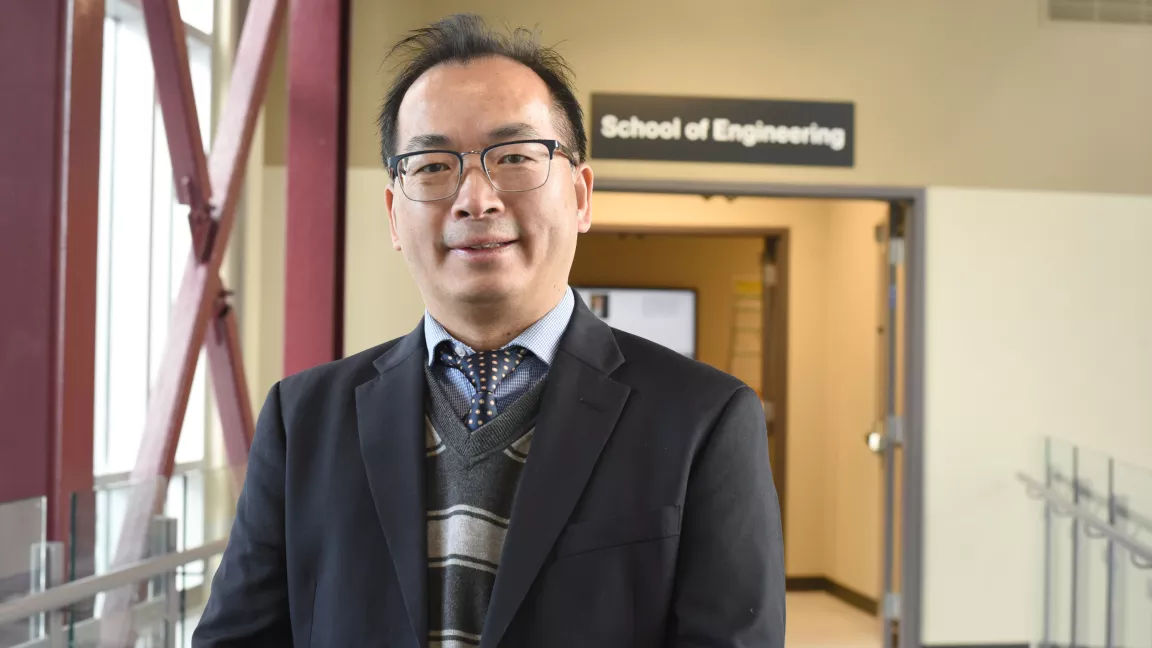Li receives renewed funding for oil spill response research
Dr. Jianbing Li received additional funding through the federal government's Multi-Partner Research Initiative to continue his research into identifying new ways to provide in-situ oil spill response.

Prince George, B.C. – University of Northern British Columbia Engineering Professor Dr. Jianbing Li's groundbreaking research to advance the science of marine oil spill response and environmental protection will enter its next phase thanks to renewed funding from the Government of Canda’s Multi-Partner Research Initiative (MPRI) through the Ocean Protection Plan.
Li’s project to develop and evaluate next-generation decanting technologies for on-site oil/water separation and disposal related to freshwater and marine oil spill response received more than $830,000 in funding over four years.
"The results of Dr. Li's innovative research will help protect Canada's environment and coastal communities and sets an example for oil spill response worldwide,” says UNBC President Dr. Geoff Payne. “Support from the federal government will allow UNBC to continue to leverage its environmental engineering expertise to mobilize knowledge for local and global change.”
Launched in 2018, the MPRI has been instrumental in fostering collaboration among industry experts, scientists and government authorities to advance our understanding of the impacts of oil pollution and to develop cutting-edge technologies for cleanup. Li’s project received funding from the program in 2019 and was one of 10 projects to receive additional funding in the latest round of grants.
Li’s research is focused on developing innovative methods for separating oil from water using equipment that can be placed on a vessel at sea, so that the decontamination can take place entirely on site. If successful, this will allow for clean water to be released back into the ocean, while minimizing the environmental impact of oil spills and ensuring a more sustainable and cost-effective approach to cleaning up marine ecosystems.
“Our lab has been developing and testing improved oil/water separation and wastewater disposal technologies under different spill conditions,” says Li. “This funding will greatly help us to advance our oil spill response solution through technological innovation and multi-partner collaboration.”
This new funding will also support the mentorship of the next generation of environmental scientists and engineers and oil spill response professionals by providing training opportunities for a diverse group of scientific trainees, ranging from post-doctoral researchers and PhD candidates to graduate students and senior undergraduate researchers.